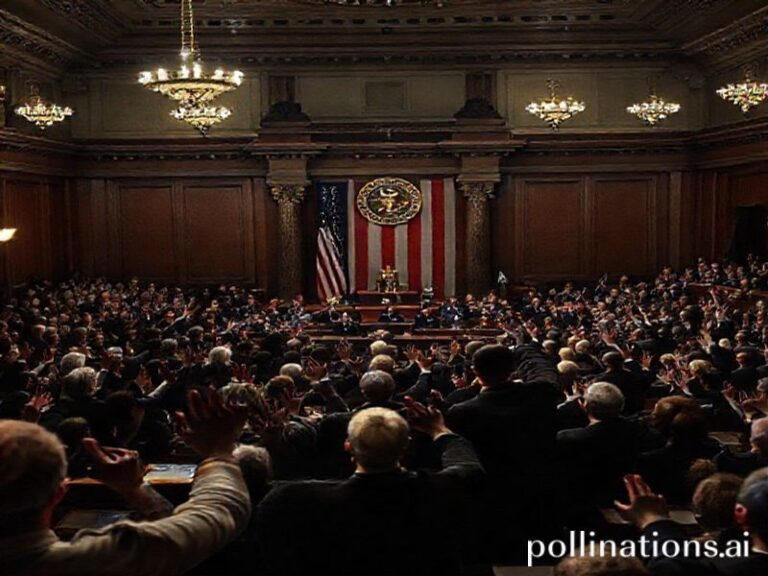How Oscar Nuñez Quietly Became the Global Patron Saint of Bureaucratic Resistance
Oscar Nuñez, the Cuban-American actor whose face is permanently stapled to our collective memory as Dunder Mifflin’s deadpan accountant Oscar Martinez, has spent two decades demonstrating that the planet’s most terrifying dictatorships and its cuddliest sitcoms are both powered by the same fuel: paperwork. While diplomats shuttle between Geneva and Riyadh pretending that multilateral accords will save us from ourselves, Nuñez has quietly proven that a well-timed eye-roll at a faulty spreadsheet can be more subversive than any sanctions package.
Born in Colón, Cuba, in 1958—exactly one revolution before the island’s next revolution—Nuñez emigrated to New Jersey via Union City, a place whose primary export is bilingual sarcasm. It’s the kind of origin story that makes European intellectuals sigh wistfully: “Ah, exile, displacement, the tragic diaspora.” Meanwhile, Nuñez simply learned that if you want to survive late-stage capitalism, you master Excel macros and keep your passport current. Both skills are now listed on the same CIA recruitment form, albeit under different euphemisms.
The Office premiered on NBC in 2005, back when the United States still believed it could export democracy faster than it could export reality TV formats. Across 201 countries, viewers discovered that the Scranton branch looked eerily identical to their own fluorescent purgatories. From Lagos call centers to Seoul back offices, workers recognized the same beige despair, the same passive-aggressive Post-it notes, the same quiet dread that the printer would jam during Ramadan, Christmas, or whichever deity currently demanded quarterly reports. Nuñez, the show’s token “rational man,” became the unofficial patron saint of everyone who has ever sat in a performance review wondering whether waterboarding might be preferable.
Hollywood’s usual approach to Latinx representation is to cast someone named Rodríguez as a drug lord or a saint—sometimes both in the same Netflix limited series. Nuñez short-circuited the cliché by being neither: just a gay, Latino accountant whose biggest crime is knowing the U.S. tax code well enough to weaponize it. In doing so, he accomplished what decades of UNESCO diversity initiatives couldn’t: he made the world comfortable with the idea that minorities can be boring in exactly the same ways as white people. Progress, it turns out, smells like lukewarm break-room coffee.
Since The Office wrapped, Nuñez has popped up in everything from Russian-dubbed shampoo commercials to a Chilean courtroom drama where he played a corrupt notary—typecasting, if you consider that every global institution is basically a notary with nuclear weapons. He even joined Space Force, Netflix’s gentle reminder that satire dies when reality volunteers to do the punchlines for free. Watching Nuñez salute Steve Carell while real generals debated satellite budgets was like seeing a Greek chorus comment on its own funeral: poignant, unnecessary, and still somehow tax-deductible.
The broader significance? In an era when nations weaponize memes and trade wars are fought with TikTok dances, Nuñez offers a quieter form of resistance: competence. While populists promise to drain swamps, he reminds us that someone still has to balance the ledger, refill the toner, and schedule the audit that will eventually expose the graft. Dictators, democrats, and data-entry temps all fear the same specter: a man who actually reads the footnotes.
So here’s to Oscar Nuñez, international man of moderate mystery, who proved that you don’t need a blue-checked Twitter account to influence geopolitics—you just need to be the only person in the room who can convert currencies without Googling it. In a world spiraling toward entropy and influencer-branded tequila, that’s practically a superpower. If civilization collapses tomorrow, the survivors will still need someone to explain depreciation schedules. Bet on the guy who already looks exhausted by the prospect.







